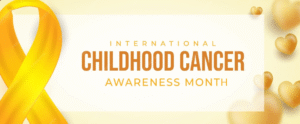Down syndrome, also known as trisomy 21, is a genetic condition that occurs when a person is born with an extra copy of chromosome 21. It is observed annually on March 21st as World Down Syndrome Day, a global initiative that aims to raise awareness about Down syndrome and promote inclusion, acceptance, and empowerment of individuals with Down syndrome. While Down syndrome is relatively well-known, there are still many misconceptions surrounding the condition. As we proceed in this article, we will share knowledge on Down Syndrome, highlighting the stereotypes and debunking the myths associated with the condition and discuss the importance of inclusion and support, while importantly advocating for equal opportunities for people with Down syndrome moving forward.
What is Down Syndrome?
Down syndrome is a genetic disorder caused by the presence of an extra chromosome 21. This extra genetic material alters the course of development and causes various physical and cognitive differences. Chromosomes are carriers of genes in the body that determine how one’s body forms and functions during pregnancy and after birth.
In regular occurrences, babies are born with 46 chromosomes. Down syndrome adds an extra copy of one of these chromosomes, chromosome 21. This extra copy changes how the baby’s body and brain develop, which causes both mental and physical challenges for the baby. While individuals with Down syndrome may share certain physical characteristics, such as almond-shaped eyes and a flat facial profile, each person is unique and may have different abilities and challenges.
Myths vs. Facts:
– Myth: People with Down syndrome are always happy.
– Fact: While individuals with Down syndrome often have a cheerful disposition, they experience a wide range of emotions, just like anyone else. They may feel happiness, sadness, frustration, and excitement, depending on the circumstances and react accordingly.
– Myth: People with Down syndrome act the same.
– Fact: This is far from true as individuals with Down syndrome have a range of personalities and character, and just like regular people, are varied in temperament. While some can be overly withdrawn and introverted, others can be livewires and very outgoing.
– Myth: People with Down syndrome cannot live independently.
– Fact: With appropriate support and accommodations, many individuals with Down syndrome can lead independent and fulfilling lives. They may work, live on their own or with support, and participate in various community activities.
– Myth: Down syndrome is hereditary and runs in families.
– Fact: Down syndrome typically occurs randomly during the formation of reproductive cells or early fetal development. While the chance of having a child with Down syndrome increases with maternal age, most cases occur in families with no history of the condition.

End the Stereotypes – World Down Syndrome Day 2024
The theme for World Down Syndrome Day 2024 is “End the Stereotypes,” emphasizing the importance of embracing and celebrating individuals with Down syndrome and recognizing their valuable contributions to our world. This theme underscores the need for society to move beyond stereotypes and misconceptions about Down syndrome and instead focus on promoting inclusion, acceptance, and respect for all individuals, regardless of their perceived differences.
Support for Individuals with Down Syndrome:
Support for individuals with Down syndrome and their families is essential for promoting inclusion, empowerment, and quality of life. Parents of kids with this condition can key into initiatives created to address the shortfall of adequate care for them. Some resources and services available to people with this condition include:
1. Early Intervention Programs: Early intervention services, such as speech therapy, occupational therapy, and educational support, can help children with Down syndrome reach their full potential and develop essential skills.
2. Educational Support: Individuals with Down syndrome have the right to access inclusive education in mainstream schools, with appropriate accommodations and support services tailored to their needs.
3. Healthcare Services: Regular medical check-ups, specialized healthcare providers, and access to healthcare services are crucial for managing health conditions commonly associated with Down syndrome, such as heart defects, vision problems, and thyroid disorders.
4. Community Organizations: Nonprofit organizations, advocacy groups, and community centers dedicated to Down syndrome provide support, resources, and social opportunities for individuals with Down syndrome and their families.
5. Employment Programs: Supported employment programs, vocational training, and job coaching can help individuals with Down syndrome find and maintain meaningful employment opportunities.
4. Social Inclusion: Fostering inclusive communities where individuals with Down syndrome are valued, respected, and included in social activities, recreational opportunities, and cultural events.
Conclusion:
Down syndrome is a genetic condition that affects individuals in various ways, but it does not define who they are. They are super intelligent, fun and loving, and can do everything that other people do. By debunking myths, understanding the facts, and providing support and opportunities for inclusion, we can create a more fitting society where individuals with Down syndrome are valued, respected, and empowered to reach their full potential.
Today and everyday, let us celebrate the diversity and resilience of individuals with Down syndrome and work together to build a more inclusive world for all.
Interested in raising awareness for WDSD? Join here
Missed our last blog? You can read it here
Need coverage for your staff? View Corporate plans here










